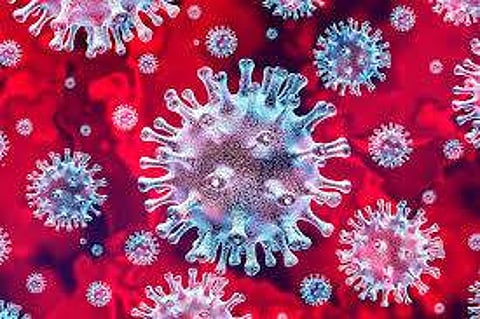

The prevalence of 'silent' symptomless COVID-19 infection may be much higher than thought, according to a study which assessed cruise ship passengers under isolation during the current pandemic. Researchers, including those from Macquarie University in Australia, noted that the study offers the first analysis of complete COVID-19 testing ofSilent all passengers and crew on an isolated cruise ship during the COVID-19 pandemic.
According to the findings, published in the journal Thorax, more than four out of five of passengers and crew who tested positive for the infection had no symptoms. Based on the results, the scientists believe that the prevalence of COVID-19 on affected cruise ships is likely to be significantly underestimated.
They said strategies are needed to assess and monitor all passengers to prevent community transmission after disembarkation. The researchers also noted that there is a pressing need for accurate global data on how many people have been infected so far. In the current study, they assessed the COVID-19 test results of 217 passengers and crew aboard an expedition cruise ship which departed from Ushuaia, Argentina, for a planned 21 day cruise of the Antarctic.
The scientists said the ship set sail in mid-March after the World Health Organization (WHO) had declared COVID-19 a global pandemic. They said people who in the previous three weeks had passed through countries where COVID-19 infection rates were already high, were not allowed to board, adding that everyone's temperature was taken before embarkation.
To reduce chances of the passengers contracting the virus, the researchers said, hand sanitising stations were plentiful aboard the ship, particularly in the dining room. However, of the 217 passengers and crew on board, 128 tested positive for COVID-19, the study noted.
Nearly a fifth of those who tested positive were symptomatic, the scientists said, adding that more than 6 per cent of the 128 passengers required medical evacuation. They said about 3 per cent of those who showed symptoms were intubated and ventilated, and one person died. One of the most important findings of the study, the researchers said was that the majority of COVID-19-positive patients, about 80 per cent, did not exhibit any symptoms.
The first case of fever, according to the study, was reported on day 8, prompting the immediate adoption of infection control measures. This included confining passengers to their cabins, stopping daily servicing, apart from the delivery of meals, and the wearing of personal protective equipment for any crew member in contact with sick passengers, they said.
Since Argentina had closed its borders, the study said the ship sailed to Uruguay, arriving on day 13. At this point, the scientists said eight passengers and crew eventually required medical evacuation to hospital for respiratory failure. On day 20, all the remaining 217 passengers and crew were swab tested for coronavirus with more than half of them testing positive, the study noted.
In 10 instances, two passengers sharing the same cabin didn't have the same test result, the researchers said. This could be because the current swab test returns a substantial number of false negative results, the authors noted in the study. Of those testing positive, they said, 24 had symptoms, but 108 didn't.
According to the authors of the study, the prevalence of COVID-19 infection on cruise ships is likely to be "significantly underestimated. " Based on the potentially high rate of false negative results obtained with the current swab tests, they suggested that secondary testing is warranted. The researchers believe that the WHO figure of 1 per cent for the number of COVID positive patients who have no symptoms falls far short of that found on the cruise ship.
However, whether or not those who have been infected are immune is yet to be determined, the scientists said, adding that there is a pressing need for accurate global data on the total number of infected people.
